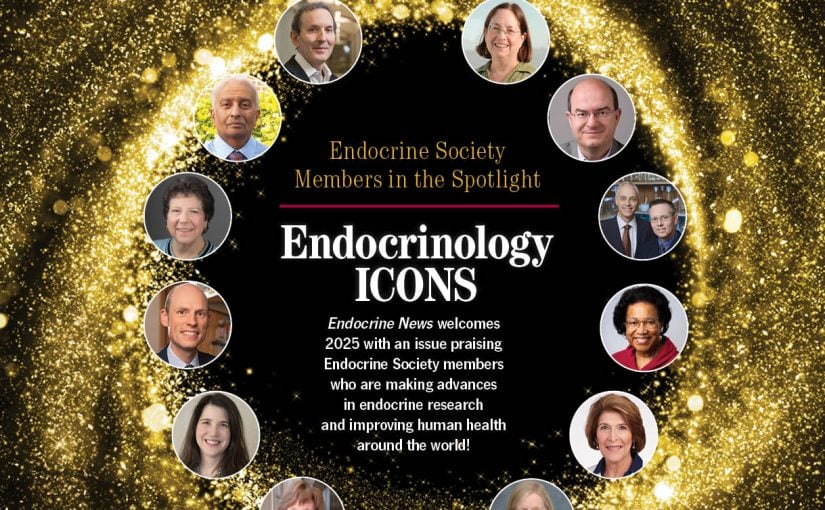This month’s cover story, “Diabetes: Will It Ever Be Cured?” (p. 8), dives into the research being conducted in labs around the world. Strides have been made, most notably in genetic research, which could be the fi rst step to fi nding an elusive cure. According to Society president Richard J. Santen, MD, “We are learning much more about the biology of diabetes, and it is beginning to pay major dividends,” he tells author Terri D’Arrigo. “As time goes on, our increased understanding will play a key role in altering the course of the disease.”
Endocrine-disrupting chemicals (EDCs) remain a focus of the Endocrine Society. In April, we ran a cover story on their links to childhood illnesses. Th is month, Eric Seaborg writes about the possible links between EDCs and male hormones in “Fertility in the Modern Male: Still More Questions than Answers,” (p. 12). While evidence suggests that EDCs do affect male reproduction, finding defi nitive links to specific conditions is still a daunting task. Still, most experts agree that avoiding these compounds is never the wrong course of action.
Aaolok Mehta writes about one of the only options available for patients diagnosed with pancreatic cancer: The Whipple Procedure. In “Knife’s Edge” (p. 16), Mehta details the statistics for this procedure and treating this deadly cancer, but at this point there isn’t much hope for complete survival. As Eugene P. Ceppa, an assistant professor of surgery at Indiana University School of Medicine in Indianapolis says, “Even the smallest, earliest detected lesions can have bad outcomes. The pancreas is a very fickle organ; it doesn’t like to be operated on.”
Finally, remember that ENDO 2015 is taking place much earlier this year: March 5 – 8 in San Diego. Go to www.endocrine.org/ endo-2015 to register today.
Mark A. Newman,
Managing Editor, Endocrine News
Dear Endocrine Society Management, Staff, Editors, Reviewers, & Authors,
My heartfelt thanks to all of you for the condolences you have conveyed to my family and me after Scott’s death. There have been so many thoughtful messages. A very special thank you to the Society staff for their efforts in helping make the May 18th celebration of his life so special by sharing your comments and memories with everyone present.
Throughout Scott’s nine-year battle with his disease, you consistently showed care and concern and we were extremely grateful. All the support — cards, flowers, phone calls, and tasty meals — meant so much to us. Scott loved his job and considered himself very fortunate to have worked with such generous coworkers. I wish you continued success with publishing the journals he took such pride in managing.
Regards, Molly Herman

